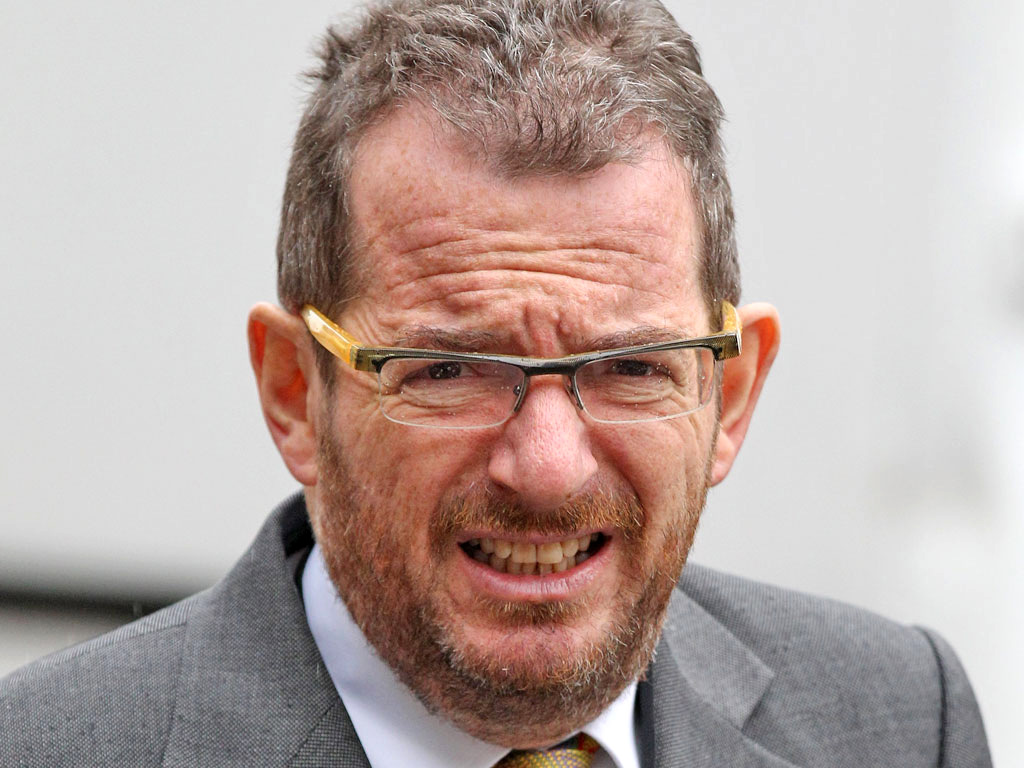Leveson lawyer: Too many potential witness were scared off by threat of 'monstering' from certain newspapers
Sir Robert Jay suspects "effective, relevant" information has been missed

Your support helps us to tell the story
From reproductive rights to climate change to Big Tech, The Independent is on the ground when the story is developing. Whether it's investigating the financials of Elon Musk's pro-Trump PAC or producing our latest documentary, 'The A Word', which shines a light on the American women fighting for reproductive rights, we know how important it is to parse out the facts from the messaging.
At such a critical moment in US history, we need reporters on the ground. Your donation allows us to keep sending journalists to speak to both sides of the story.
The Independent is trusted by Americans across the entire political spectrum. And unlike many other quality news outlets, we choose not to lock Americans out of our reporting and analysis with paywalls. We believe quality journalism should be available to everyone, paid for by those who can afford it.
Your support makes all the difference.Potential witnesses holding relevant evidence that should have been heard by Lord Justice Leveson’s press probe were scared off by the perceived threat of being “monstered” by certain newspapers, according to the QC who lead questioning at the inquiry.
Sir Robert Jay, now a High Court judge, after being promoted in June this year, told the Lords committee investigating the value and operation of the Leveson Inquiry and that he suspected "effective, relevant" information had been missed due to fears by would-be witnesses.
These fears, he said, centred on possible repercussions of giving evidence in public in the wake of the News of the World phone-hacking scandal.
"There were witnesses who did not want to speak out against the press because their perception was, to use a horrible word, that they would be monstered by the press at some later date," he said.
"I don't want to comment on how well-based their perceptions were but it was certainly a strong perception which gave rise to difficulties," he added.
The comments by Sir Robert come after serial refusals by Sir Brian Leveson last week, to both Lords and MPs, to comment on, or explain further, the recommendations contained in his lengthy report into press practices and ethics.
The appeal court judge said it would be “inappropriate” for him to comment and risk his judicial neutrality, stating anything anyone wanted to know could be found in his report.
Sir Robert, who gained an unusually high media profile for a specialist lawyer after becoming the inquiry’s chief inquisitor during months of televised evidence from the High Court, however admitted that he was often “completely dissatisfied” by the evidence that had been given to him by witness, and qualified his comment to the Lords committee, adding “but that is another story".
However he accepted it was correct for the inquiry to be broadcast live "because otherwise the press was going to report on it as they saw fit". He described the live broadcast of the inquiry as “an objective eye.”
Later this month in a historic change of attitude by the judiciary, television cameras will be allowed into proceedings of the Court of Appeal.
The decision to broadcast closing comments from appeal cases was backed by the former Lord Chancellor, Kenneth Clarke. Cameras will be trained only on the judges’ bench and on the main counsel. No footage of a jury or others in the courtroom will be allowed.
Sir Robert, who has joined Lord Justice Leveson in the Queen’s Bench Division in the High Court, said he was personally not in favour of allowing in cameras.
Questioned on the timeline of the inquiry ordered by David Cameron in July 2011, which took just over a year from the opening of its public witness sessions to the delivery of the final report in November last year, Sir Robert said he believed an “ideal” comprehensive inquiry would have lasted up to three years and cost around £25 million. However he believed the inquiry had done its job given the time constraints.
He backed up Lord Justice Leveson’s decision to remain silent in the currently heated debate on what was, and wasn’t, “Leveson-approved” in terms of the government’s proposed royal charter on press regulation.
He told the committee: "Either the politicians choose to implement what he [Sir Brian Leveson] recommended or they don't. He is quite right to draw a line underneath it all.”
Join our commenting forum
Join thought-provoking conversations, follow other Independent readers and see their replies
Comments